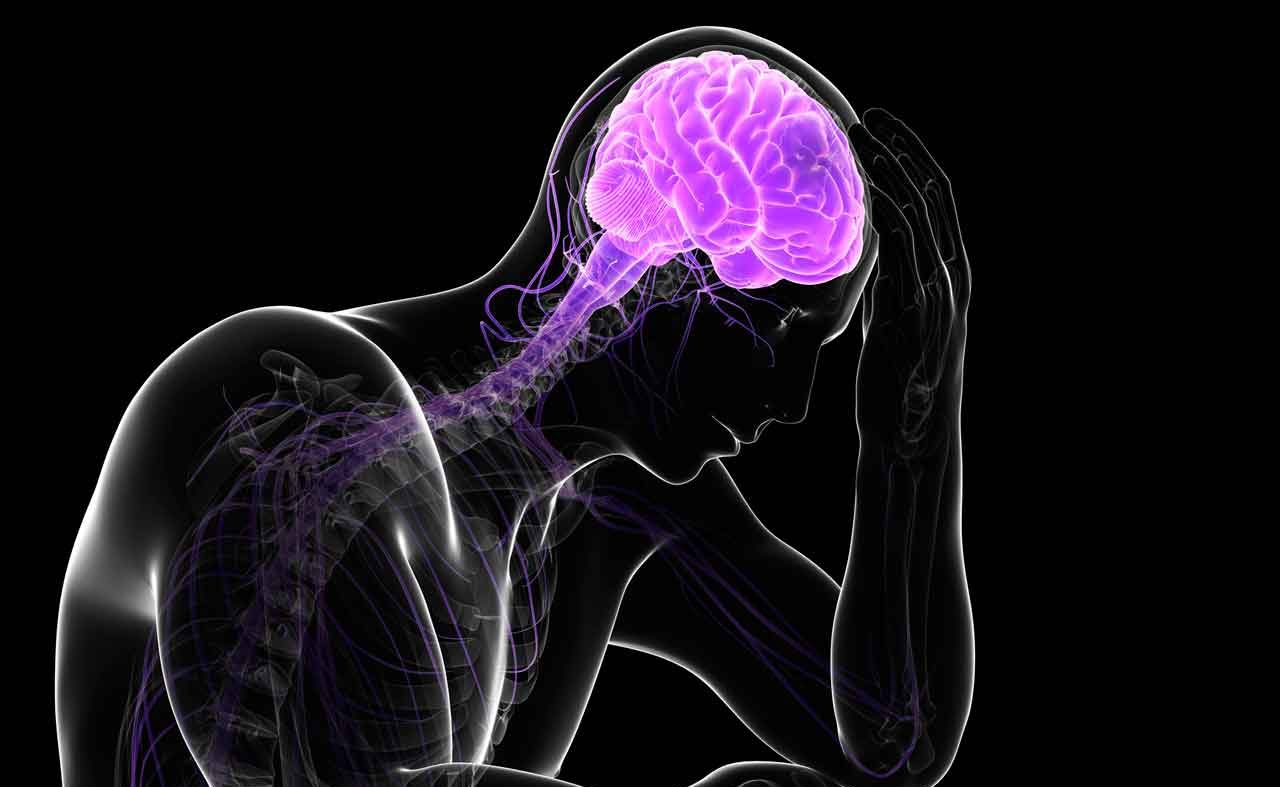The Effects of Stress on Your Brain

The long-term effects of stress can damage the structure and function of your brain. Here's what you should know about the effects of stress on your brain.
Stress is not necessarily a bad thing.
Stress is simply your brain’s response to any demand. This response evolved as a survival mechanism to help you respond to changes in your environment. The changes can be common and harmless, such as meeting a new person or moving to a new city, or complex and threatening, such as going through a natural disaster or losing your job.
But the levels of stress you experience can vary drastically. When stress becomes too common in your life, the effects of stress to your health can be severe.
YOU MIGHT ALSO LIKE: Yoga for Anxiety and Stress
Stress and cortisol
Stress causes your brain to release the hormone cortisol, temporarily changing how your body functions. That process causes your pulse and breathing to accelerate, your muscles to tense, and your body to divert oxygen and energy away from physical systems like digestion toward your brain. The changes allow you to make decisions quickly, work efficiently, and respond to physical threats, a healthy response to stress.
Your body is designed for the increase in cortisol to occur in short bursts, known as acute stress. Such stress is a temporary condition before your hormones return to their normal balance. When you experience recurring or chronic stress, however, the changes are no longer temporary.
Chronic stress comes from a variety of causes, including work, school, traumatic events, discrimination, family trouble, financial problems, and personal relationships, as well as behavioral conditions such as anxiety disorder.
Researchers have found that long-term effects of stress cause a constantly elevated level of cortisol that can physically harm your body, including:
- Trouble sleeping
- Poor digestion
- Lowered fertility
- Headaches
- A compromised immune system
But chronic stress can have even more troubling effects, changing the structure and function of your brain.
Effects of stress on your brain
Chronic high levels of stress can inhibit brain function and growth, leading to poor mental health, trouble concentrating, and decreased cognition.
Research from neuroscientists at the University of California, Berkeley, found that high levels of cortisol can damage brain cells, creating long-term changes in how your brain functions while altering its fundamental structure. The study found that chronic effects of stress can shrink the hippocampus, the area of your brain responsible for memory and emotion.
A separate study showed that high levels of stress can cause the overall volume of your brain to shrink, causing a loss of vital neural connections.
High levels of cortisol can cause the stem cells in your brain to change function, forming new pathways that inhibit learning and memory. The new pathways create a constant fight-or-flight state in your brain, resulting in trouble processing emotions, depression, anxiety, and post-traumatic stress disorder.
Other research, conducted by the Brain Mind Institute, found that chronically high levels of cortisol cause overproduction of an enzyme known as MMP-9. When MMP-9 levels become too high, they destroy connections in the hippocampus responsible for memories and social interaction. As a result, the changes might explain why people who experience chronic stress begin to display antisocial behavior and inhibited cognition.
The changes in brain structure can begin as early as infancy, possibly even in the prenatal period of growth. If left unaddressed, they can become permanent. One study found that children exposed to high levels of stress were more likely to have poor mental health as adults.
How to reduce stress and improve mental function
Such changes in your brain don’t have to be permanent. Reducing unhealthy levels of stress can help repair your neural connections, enhance cognition, and improve your mental and emotional health.
Young adults and children can recover more quickly from the results of chronic stress, according to the Proceedings of the National Academy of Sciences. But good stress management techniques can improve brain function at any age.
The National Institute of Mental Health recommends several strategies for coping with stress, including:
- Emotional support from friends and family
- Avoiding alcohol and other drugs
- Regular physical activity and relaxation
- Mental exercises such as meditation or yoga
Depending on the cause of your stress and the effect it has on your ability to function, you may need to seek help from a mental health professional to lower your cortisol levels and help your brain heal.
YOU MIGHT ALSO LIKE: How to Reduce Stress with a Mind-Body Approach
Updated:
July 19, 2023
Reviewed By:
Christopher Nystuen, MD, MBA